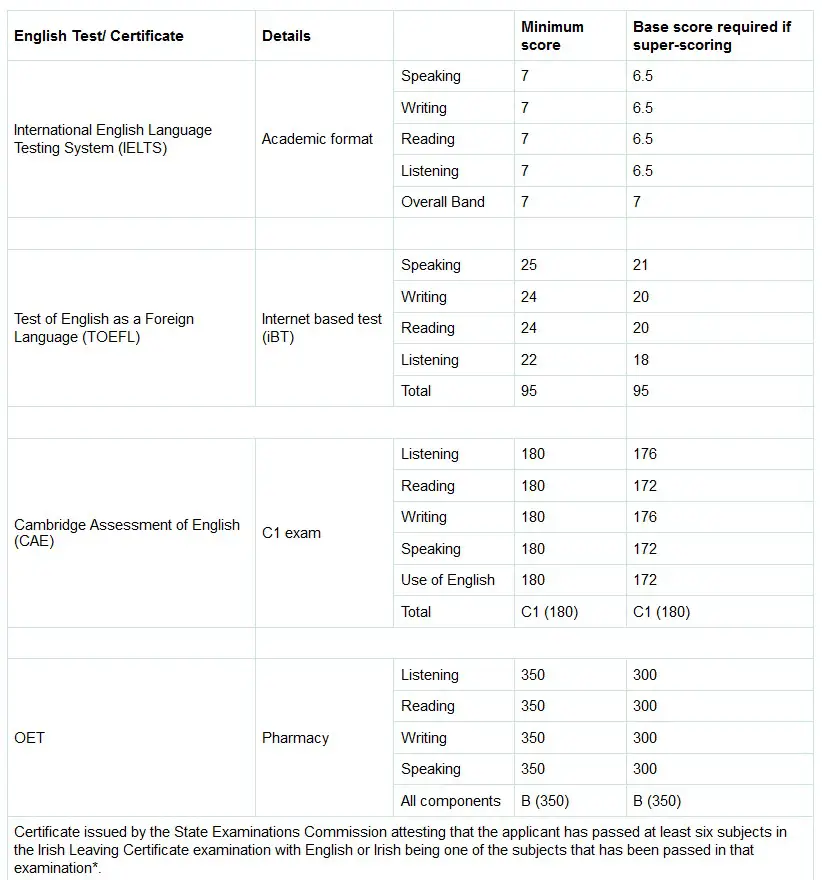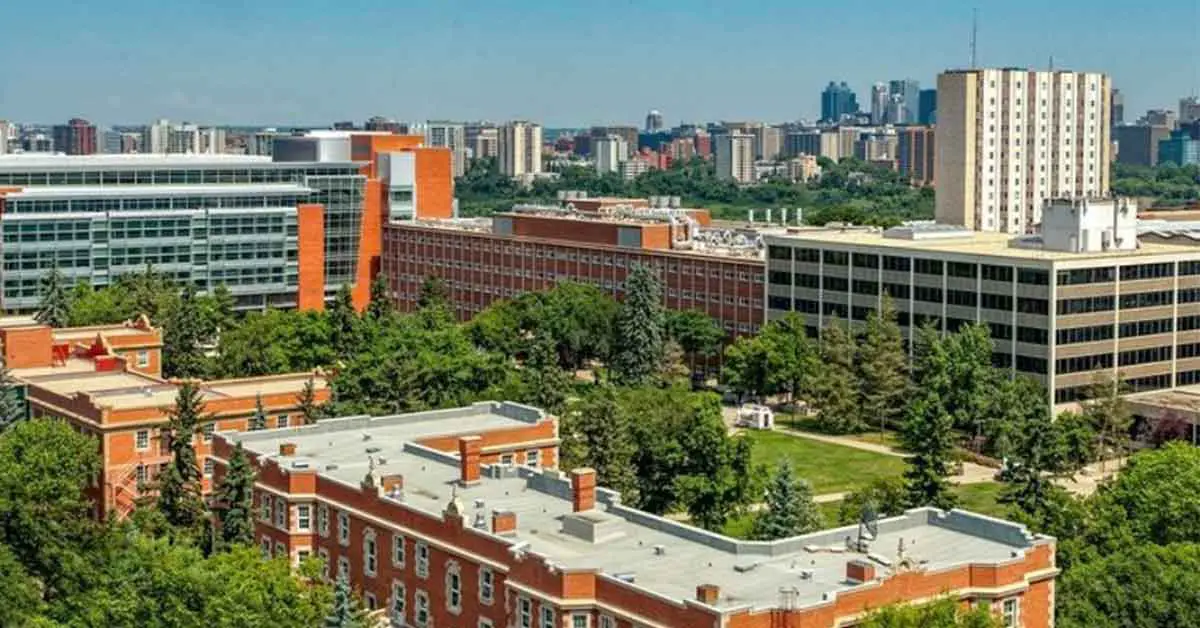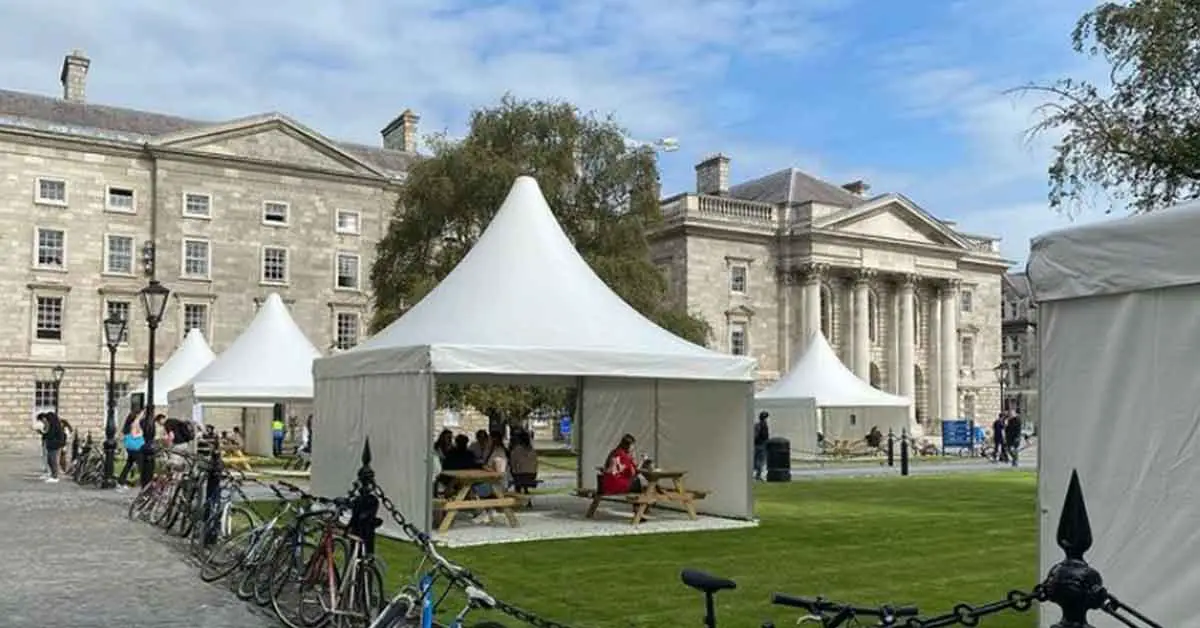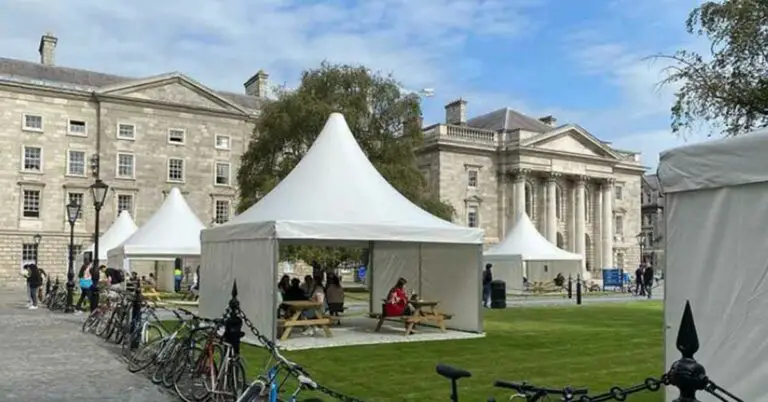A full-time study and degree in a pharmacy school is a basic requirement to become a pharmacist in Ireland. Three pharmacy schools in Ireland provide the avenue for candidates to study pharmacy.
Before September 2015, a pharmacist in Ireland undergo a four-year academic training, and complete the National Pharmacy Internship Programme (NPIP). This will qualify the person as a pharmacist in Ireland. However, this study approach has changed.
Recently, the scope of pharmacy education has changed in Ireland. It resulted in the development of an integrated five-year pharmacy program by the three universities offering pharmacy courses: TCD, UCC, and RCSI.
This five-year academic structure started in September 2015. In the new structure, the aspiring pharmacists will complete a five-year program which includes four years full-time academic training – both theoretical and practical, and a 12-month traineeship in a community pharmacy or hospital pharmacy department. The four-year undergraduate course leads to the award of a B.Sc. (Pharm.).
After the postgraduate fifth-year study, successful candidates will be awarded the M. Pharm degree. According to the regulations of the Pharmaceutical Society of Ireland, the M. Pharm is the minimum requirement required to practice as a pharmacist in Ireland.
About the Pharmaceutical Society of Ireland (PSI)
The PSI is responsible for regulation of pharmacy education, training and the practice of Pharmacy in Ireland in accordance with the Pharmacy Act of 2007. Their accreditation team also ensures that the pharmacy schools maintain the standards and Code of conduct. There are three accredited pharmacy schools in Ireland.
The PSI organises continuing professional development (CPD) for pharmacists.
Registration of Pharmacists in Ireland
The registration portal of the PSI is open to registration for pharmacists trained in Ireland, foreign trained pharmacists wishing to practice in Ireland, pharmacy assistants, and pharmacy retail businesses.
For registration as a pharmacist, you will be required to submit documents such as birth certificate, ID or passport, your Pharmacy Certificate, and Health Declaration Form. A fee is charged. A hard copy of Photograph and Statutory Declaration form and two passports are also necessary.
Initial registration as a pharmacist cost €540.00, while subsequent annual renewal costs €380.00 (a charge of €30 is made if the registration exceeds 30 days before the expiry of the current licence.
At the completion of pharmacy education, the Pharmacist is required to register with the PSI to be eligible to practice as a pharmacist in Ireland.
For Irish trained pharmacist who want to practice in another country, a Certificate of Confirmation of Qualification (CCQ) and/or Current Professional Status (CCPS) will be sent by the PSI to the relevant pharmacy body in that country.
Registration of a foreign trained pharmacist in Ireland
For pharmacists from an EU or European Economic Area (EEA) member countries who want to register in Ireland, there are two major steps. The first step is the recognition of your certification, while the second step is the registration. Both steps are completed at the PSI portal.
Alternatively, you can complete the first step using the European Professional Card (EPC). This EPC card is held by EU citizens to show their academic qualifications, and they are recognized in all EU countries. Though there might be other considerations.
Documents needed are Birth certificate, Pharmacy degree certificate, Health Declaration form and Certificate of Language competence (English language)
For a pharmacist from Non-EU countries (which now include Great Britain and North Ireland), registration as a pharmacist is through the Third Country Qualification Recognition. However, pharmacists from Britain and Northern Ireland, who received their certificate before 31 December 2020, follow a one-step process.
Any other pharmacist under the Non-EU countries must, first, apply for qualification recognition – a four-step process that can be time-consuming. This stage includes the submission of the application form, certificate of identity form, statutory declaration form, other documents and a non-refundable fee of €1,500.00.
Next, you have to sit for an equivalence exam.
Adaptation Period is the next step to follow. You will be assigned a tutor pharmacist for a period of at least 6 months. If this stage is successful, you will write a Professional Registration Examination (PRE) to ensure you are conversant with pharmacy practice in Ireland.
Step 2
The second stage is registration. English language competence is a basic requirement.
Language Competence: The student must exceed the minimum score in each component, as well as the minimum total score. The result is valid only for two years after the submission of the application. The tests include International English Language Testing System (IELTS), Test of English as a Foreign Language (TOEFL), Cambridge Assessment of English (CAE), and OET.

How to Study Pharmacy in Ireland
Any application to study the Pharmacy degree must go through the Central Applications Office (CAO). The CAO processes all undergraduate studies in the Irish Higher Education Institutions (HEIs).
Read our other post on how to secure admission to study pharmacy in Ireland, the schools that offer pharmacy degrees and entry requirements.












